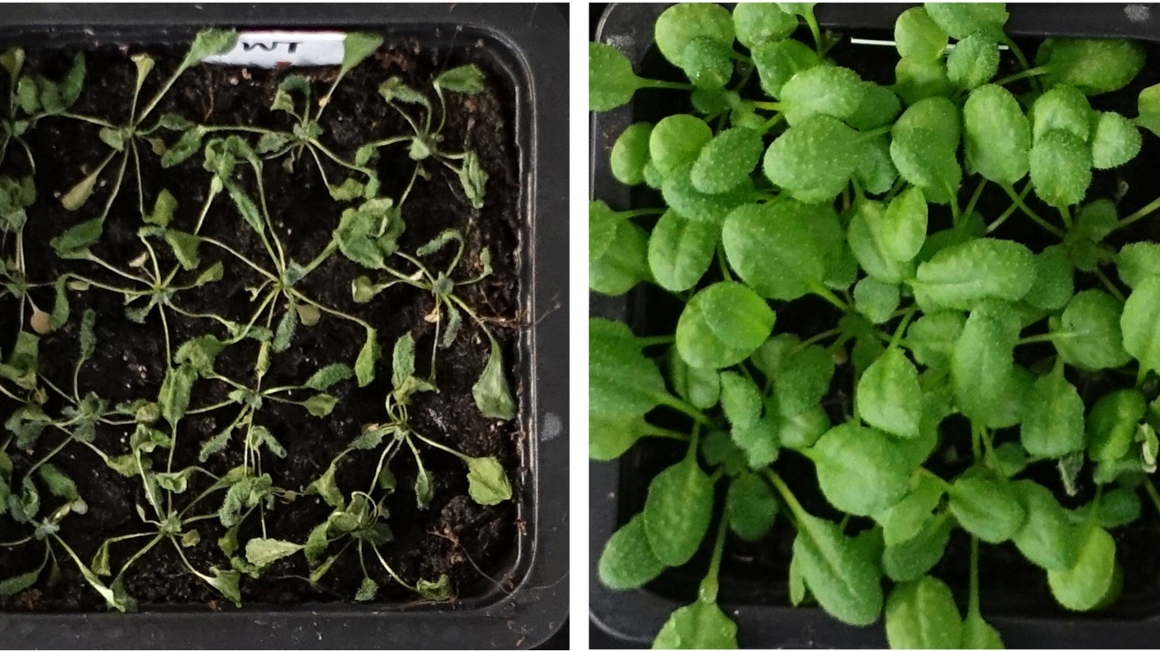Call for new rules for GMOs
Science academies and the German Research Foundation are urging EU legislators to reconsider the regulation for genetically modified organisms.

All organisms that have been genetically modified fall under the regulations for genetically modified organisms (GMOs) in the European Union, according to the ruling of the European Court of Justice in 2018. This sounds plausible at first glance, but it is not that simple, as the Max Planck Society has already pointed out. Depending on the method used, genome-edited organisms cannot be distinguished from organisms modified by conventional breeding methods or even naturally occuring mutations. Therefore, the National Academy of Sciences Leopoldina, the Union of the German Academies of Sciences and Humanities and the German Research Foundation (DFG) are now calling for the revision of the EU regulations in a joint position paper titled "Towards a scientifically justified, differentiated regulation of genome edited plants in the EU".
Evaluating results instead of methods
The regulation of genetically modified organisms dates back to a time when they applied mostly to transgenic organisms, i.e. organisms to which foreign genes were introduced using methods quite imprecise by today's standards. Modern methods of genome editing such as CRISPR-Cas, on the other hand, often only reactivate defective genes of an organism or deactivate functional genes. Both effects occur permanently as a result of natural mutations and are the basis of classical breeding. However, the type of genetic modification is not being taken into account for regulatory purposes - and often cannot be determined after the fact, the position paper argues.
Decision affects more than 100 improved varieties
However, the question of whether genome-edited organisms also fall under the current EU regulation is not a purely academic one, the position paper stresses. Their inclusion "makes it difficult to study, develop and cultivate improved crops which are urgently needed for productive, climate-adapted and more sustainable agriculture," according to the Leopoldina's statement. The method also accelerates plant breeding considerably and reduces costs enormously, from which small and medium-sized enterprises benefit. There are currently more than 100 marketable genome-edited crop varieties worldwide that offer advantages to farmers, consumers or the environment, but are being held back in the EU by the GMO Regulation. These include soybeans with healthier fatty acids, gluten-reduced wheat, bacteria-resistant rice, fungus-resistant varieties of wine, wheat and cocoa, and drought-tolerant varieties of corn, wheat and soybeans.
Revise labelling and information
In their statement, the scientific institutions therefore call as a short-term measure for the classification to be based not on the method used but on the outcome - the change in the product. If they contain no foreign DNA, the organisms should be exempted from the GMO Regulation, as is already the case in many other countries. In the long term, the legal framework in this area should be completely revised.
In addition, the position paper advocates facilitating field research with these organisms, because this part of the research is important in order to understand, for example, salt, drought and heat tolerance on a genetic level. The scientific institutions are also taking a stand on labelling: a uniform system should enable consumers to make an informed choice, accompanied by information campaigns on the various breeding methods.
bl/um


